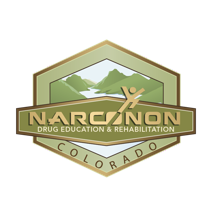The Numbers Are In: 71,000 Overdose Deaths in 2019

So far, 2020 has been one heck of a year and not in a good way. This year has been full of bad news in one form or another. As soon as we think it can’t get worse, it does. The COVID pandemic has literally changed society and the way we interact with one another. The political scene surrounding this year’s upcoming presidential election has consumed the attention of most news outlets, and as soon as we’ve felt as though we can’t handle any more upsetting news, we get more. The last thing we needed to find out was that 2019 wound up being a record-breaking year with the amount of fatal drug overdoses that occurred.
The last two decades have been a roller coaster in regard to the opioid/drug problem. Countless drug rehabs, detoxes, halfway houses, medications, support groups, and drug awareness campaigns have tried to arrest the problem or at least slow it down. At the end of each year, many of us patiently wait for the CDC to release the statistics for the previous year, in hopes that our efforts have paid off. For 2019, it seems the drug overdose problem got worse, not better. The CDC just released the numbers this past week. Almost 71,000 people in the United States alone died from a drug overdose in 2019, with 36,500 attributed to synthetic opioids, such as fentanyl and its many analogs. Cocaine and methamphetamine-involved deaths also appear to be on the rise.
One thing to remember is that these numbers are pre-COVID. Some people may look at these statistics and think COVID had something to do with it, being that the disease is public enemy number one right now. These numbers are from 2019, so COVID wasn’t an issue at that time.
One of the most discouraging things about this rise in overdose deaths is the large amount of money that was allocated to helping the drug problem failed to bring the numbers down. Many professionals in the field expected to see a decline in the numbers or at least a small decline of some sort.
“We got it to stall out a bit. Now we need to grab on again and not let this get away from us.”
According to Robert Anderson of the CDC, “We got it to stall out a bit. Now we need to grab on again and not let this get away from us.”
Assistant Secretary for Health Adm. Brett Giroir said, “We understand that there is an extraordinary amount of work to do, especially now as we are also dealing with the COVID-19 pandemic that could markedly affect our nation’s mental health and risk of substance use.”
Obviously the COVID-19 pandemic has caused enough psychological and emotional distress to jump the overdose rates in 2020. Hopefully, we can start coming up with some actual solutions to curb the death rate because we can’t blame last year’s overdose death rate on today’s current problems.
Addiction continues to remain our society’s most pervasive problem. No matter what political or socio-economic issues have occurred over the last twenty years, addiction is still our number one health crisis, even if it’s taken a back-burner on the news lately.
Sources Used:
https://apnews.com/dc15cae6e299bbbf73ce0e4b67d4d02d


